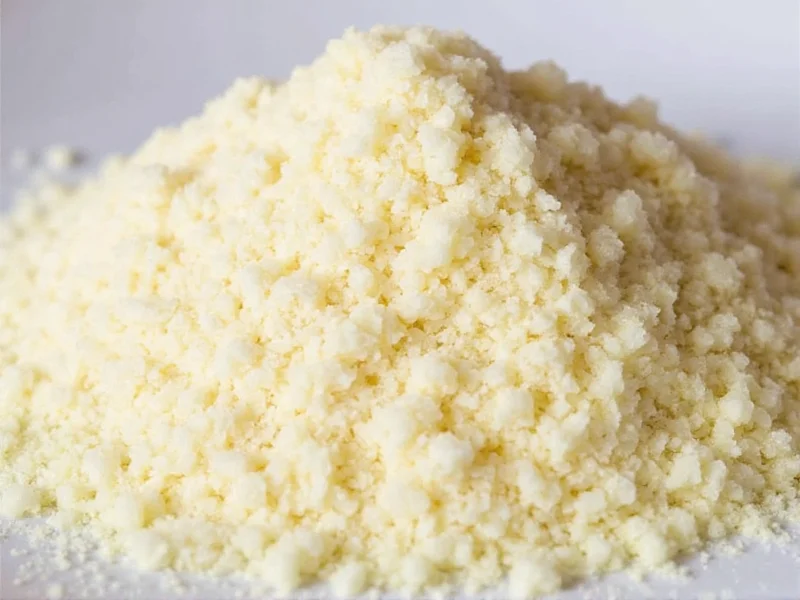Onion powder is a versatile kitchen staple that adds rich flavor to countless dishes, but its carbohydrate content matters significantly for those tracking their intake. Understanding the precise nutritional profile helps home cooks and health-conscious individuals make informed decisions about using this common seasoning.
Nutritional Profile of Onion Powder
Dehydrated onion powder concentrates the nutritional components of fresh onions, which affects its carbohydrate density. Unlike fresh onions that contain about 9-10% carbohydrates by weight, the dehydration process significantly increases the carb concentration per volume.
| Nutrient | Per 1 Tablespoon (6g) | Per 100g |
|---|---|---|
| Total Carbohydrates | 4.5g | 75g |
| Dietary Fiber | 1.5g | 25g |
| Sugars | 1.5g | 25g |
| Net Carbs | 3.0g | 50g |
| Calories | 23 | 380 |
Understanding Serving Sizes and Practical Impact
When evaluating carbs in onion powder per tablespoon, it's crucial to recognize that most recipes use smaller quantities than a full tablespoon. Typical usage ranges from 1/4 to 1/2 teaspoon per serving, which dramatically reduces the carb impact.
A quarter teaspoon (about 1.5g) of onion powder contains only approximately 1.1 grams of total carbs and 0.75 grams of net carbs. This modest amount fits comfortably within most dietary frameworks, including moderate low-carb approaches. However, commercial spice blends often contain higher quantities, making onion powder carbohydrate content an important consideration when analyzing prepared foods.
Comparison to Fresh Onions
Fresh onions contain significantly fewer carbs by volume due to their high water content (approximately 89%). One medium onion (110g) provides about 10 grams of total carbs, but requires dehydration of roughly 6-7 onions to produce a single tablespoon of powder.
This concentration effect explains why onion powder vs fresh onion carbs differs substantially. While fresh onions might contribute 1-2 grams of carbs per typical serving in a dish, the same flavor intensity from powder delivers those carbs in a much smaller physical quantity. For those monitoring carb count for onion powder precisely, this concentration factor is essential to understand.
Dietary Considerations
For individuals following strict ketogenic diets (typically limited to 20-50g net carbs daily), onion powder net carbs keto calculations become particularly important. At 3g net carbs per tablespoon, it can quickly consume a significant portion of daily carb allowances if used liberally.
Those managing diabetes should note that onion powder has a moderate glycemic impact due to its natural sugar content. The fiber content helps moderate blood sugar response, but portion control remains essential. Many low-carb alternatives exist, including asafoetida (hing) or garlic powder, which has slightly fewer carbs at 2.8g net carbs per teaspoon.
Practical Usage Guidelines
Accurate measurement significantly affects the how many carbs in dried onion powder equation. Using a proper measuring spoon rather than estimating ensures consistent carb tracking. When substituting fresh onions for powder, use this conversion: 1 tablespoon powder = 1/3 cup chopped fresh onions.
Storage conditions don't significantly alter the carbohydrate composition, but moisture exposure can cause clumping that affects measured volume. Keep onion powder in an airtight container away from heat and light to maintain consistent density and accurate measurements.
Frequently Asked Questions
How many net carbs are in one teaspoon of onion powder?
One teaspoon (approximately 2g) of onion powder contains about 1.5 grams of total carbohydrates, 0.5 grams of dietary fiber, resulting in 1 gram of net carbs. This makes it a moderate-carb seasoning that requires portion awareness for strict low-carb diets.
Is onion powder suitable for a keto diet?
Onion powder can fit within a keto diet when used sparingly. With 3g net carbs per tablespoon, small amounts (1/4-1/2 teaspoon) contribute minimal carbs to dishes. Many keto cooks use it for flavor without exceeding their daily carb limits, but those on very strict keto may prefer alternatives like asafoetida or chives.
Does onion powder have more carbs than fresh onions?
Yes, by volume, onion powder has significantly more carbs than fresh onions due to water removal during dehydration. While fresh onions are about 9% carbs by weight, onion powder is approximately 75% carbs. However, you use much smaller quantities of powder to achieve similar flavor, so the actual carb contribution per serving can be comparable.
How does onion powder affect blood sugar levels?
Onion powder contains natural sugars that can affect blood sugar, though its fiber content helps moderate the impact. With 1.5g of sugars per tablespoon, it has a moderate glycemic effect. People with diabetes should account for it in their carb counting and consider using smaller amounts or alternatives if blood sugar control is challenging.
What is a low-carb alternative to onion powder?
Asafoetida (hing) provides a similar savory flavor with virtually no carbs (less than 0.1g per 1/8 teaspoon). Garlic powder is another option with slightly fewer net carbs (2.8g per teaspoon versus 3g for onion powder). For fresh alternatives, chives or scallion greens offer onion-like flavor with minimal carb impact.











 浙公网安备
33010002000092号
浙公网安备
33010002000092号 浙B2-20120091-4
浙B2-20120091-4